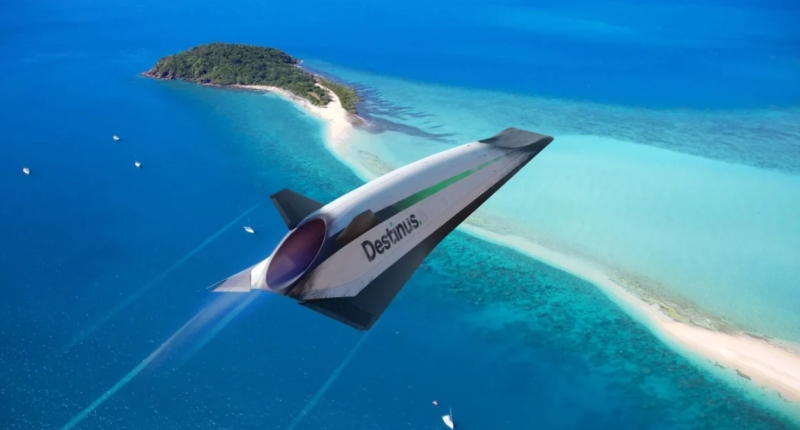The Spanish government has invested heavily in hydrogen propulsion, a major cornerstone of the European Commission’s plan to secure Europe’s energy supply and reduce dependency on oil-rich states. Destinus, a European aerospace firm, will be testing a hydrogen post-combustor jet engine to further advance the development of hydrogen-based solutions for aeronautical mobility. Spain’s Iberian Peninsula is predicted to become the hydrogen superpower of Europe due to its renewable electricity resources, flexible electricity grid, and existing in-country demand. The region also has a well-developed energy market infrastructure, including ports and natural gas pipelines extending into the rest of Europe. Destinus has won €27 million in grant funding to design and test hydrogen-propelled jets capable of supersonic flight, reducing flight times between Australia and Europe to four hours. The funding shows that Destinus is aligned with the strategic lines of Spain and Europe to advance hydrogen flight.
European Aerospace Firm Wins Grant to Design Hydrogen-Propelled Jets for Supersonic Flight
Destinus, a European aerospace company, has secured a grant funding of €27 million from the Spanish Ministry of Science’s Centro para el Desarrollo Tecnológico e Industrial. The grant will be used to design and test hydrogen-propelled jets capable of supersonic flight, which Destinus claims could reduce flight times between Australia and Europe to around four hours.
The firm has partnered with Spanish engine manufacturer ITP Aero to develop a hydrogen engine test facility, which was launched in June last year. With the support of the Instituto Nacional de Técnica Aeroespacial (INTA), the new grant will further enhance the capacity of the facility.
The test facility, with a cost of €12 million, will be located near Madrid and will house Destinus’ prototype hydrogen-fueled aircraft. The second grant, amounting to €15 million, will fund the research into innovative propulsion system solutions using liquid hydrogen to produce aircraft that can fly at supersonic speeds.
Hydrogen fuel has several benefits, such as reducing aircraft emissions to almost zero, having a higher energy by mass, and using water as its raw material. The prototype hypersonic hydrogen-fuelled plane is capable of transporting passengers from Sydney to Frankfurt in four hours and 15 minutes. Despite successfully flight-testing two prototype aircraft, hydrogen aircraft technology is still in its early stages.
Hydrogen fuelled planes have issues that need addressing, such as the large storage tanks needed to supply enough fuel, and ensuring the hydrogen supplied is green energy, meaning it was produced using renewable electricity rather than energy derived from fossil fuels.
Although the Concorde, the last supersonic passenger plane, was grounded more than 20 years ago following a fatal accident, airlines are still interested in the concept of supersonic passenger flights. Last year, American Airlines made a commitment to purchase 20 Overture Jets, developed by Boom Supersonic, that are powered by Sustainable Aviation Fuels (SAF).
Spanish Government Invests in Hydrogen Propulsion to Secure Energy Supply
The Spanish government has invested heavily in hydrogen propulsion as part of its Economic Resilience and Transformation Plan, which is in line with its Plan Nacional del Hidrógeno. The country’s Iberian Peninsula is tipped to become the hydrogen superpower of Europe due to its renewable electricity resources, flexible electricity grid, and existing in-country demand. Spain’s energy market infrastructure, including ports and natural gas pipelines extending into the rest of Europe, has been well-developed, further boosting its hydrogen propulsion capabilities.
Hydrogen is also a major cornerstone of the European Commission’s plan to secure Europe’s energy supply and reduce dependency on oil-rich states. Destinus, a European aerospace firm, will be flight-testing a hydrogen post-combustor jet engine, which will further advance the development of hydrogen-based solutions for aeronautical mobility.
Destinus has won €27 million in grant funding from the Spanish Ministry of Science’s Centro para el Desarrollo Tecnológico e Industrial to design and test hydrogen-propelled jets capable of supersonic flight, reducing flight times between Australia and Europe to four hours. The grants show that Destinus is aligned with the strategic lines of Spain and Europe to advance hydrogen flight. The funding will be used to carry out advanced research and accelerate innovation.
Don’t miss interesting posts on Famousbio

